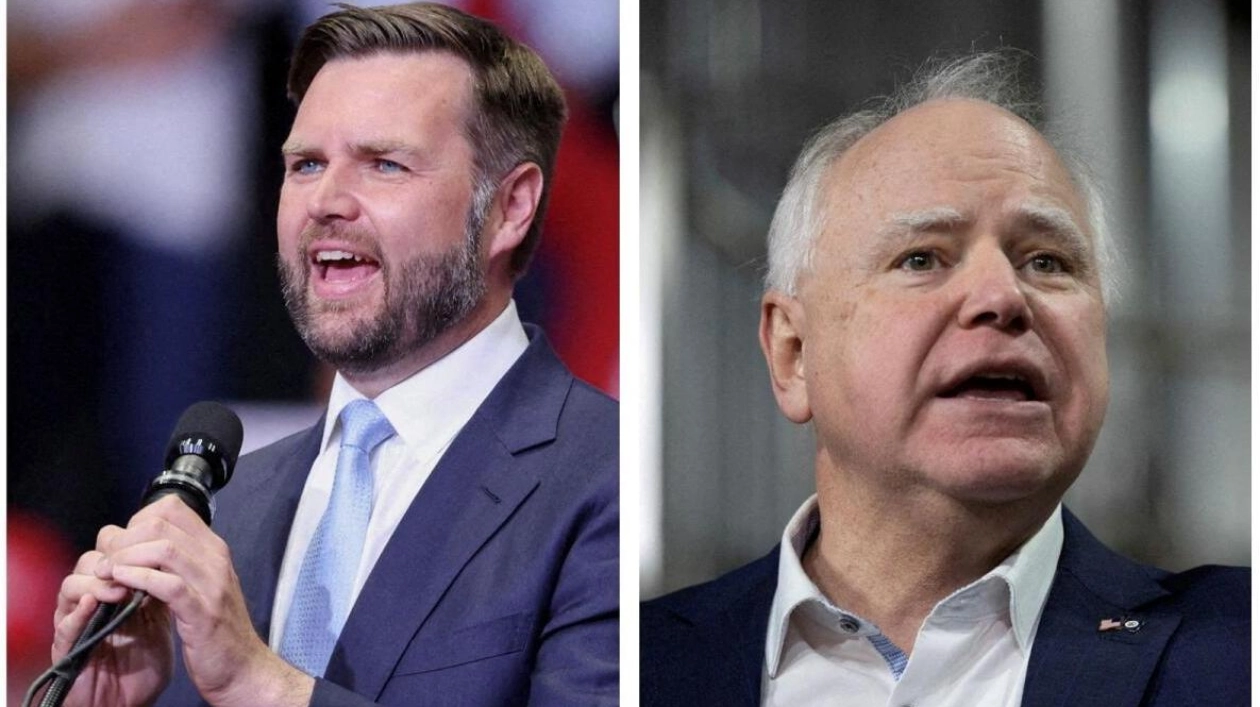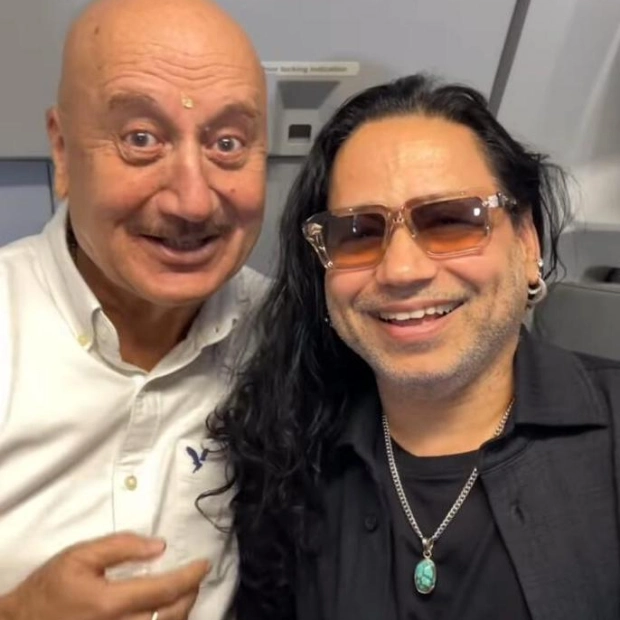One vice-presidential candidate is a best-selling author who coined the term “childless cat ladies” to disparage Democrats and latched onto a fabricated story about immigrants eating pets. The other is a folksy former high school football coach who has faced scrutiny about his military service and has labeled his Republican opponents “weird,” a label that quickly gained traction. Both are white men from the US Midwest who claim to understand what Americans in the heartland truly desire but are deeply divided over policy issues. When Republican JD Vance and Democrat Tim Walz face off in a vice-presidential debate next week, both will aim to elaborate on the basic profiles the American public has seen of them so far while advocating for their respective presidential nominees, Donald Trump and Kamala Harris.
Typically, a vice-presidential debate is seen as the undercard, a clash often overlooked by voters. However, Walz and Vance's exchanges have garnered disproportionate attention, and voters might be more intrigued than usual to see them go head-to-head on Tuesday in their only scheduled debate before the November 5 election. With no further presidential debates planned, the vice-presidential showdown will also provide both men the chance to make compelling final arguments on behalf of their campaigns — just as early voting begins across the country.
“Ultimately, their most crucial role is to be an effective surrogate and proxy for their respective campaigns,” said Aaron Kall, an expert on presidential debates at the University of Michigan. Harris was widely perceived as outperforming Trump in their September 10 debate. This might place additional pressure on Vance, a 40-year-old pugnacious first-time US senator from Ohio whom Trump selected to energize his right-wing base, to deliver a strong performance.
Walz, the 60-year-old governor of Minnesota and a long-serving member of Congress whom Harris chose partly to broaden her appeal to independents in states like Wisconsin and Pennsylvania, has criticized Vance as a “weird,” out-of-touch Ivy League-educated wonk. Vance, author of the bestselling memoir Hillbilly Elegy, will likely need to address his willingness to promote a fictional story of Haitian immigrants eating household pets in Springfield, Ohio, as well as his hardline stance on abortion, including his past support for a national ban. Walz will likely be questioned on how he, as governor, managed the riots in Minneapolis in 2020 following the death of George Floyd at the hands of police.
One of Vance's objectives will be to portray Walz as a leftist masquerading as a moderate, according to someone involved in the Republican's debate preparations. A self-proclaimed champion of “progressive values,” Walz as governor made school meals free and expanded paid leave. Vance will also likely criticize Walz's military record, the person said.
Vance, who served in the Marine Corps and was a public affairs officer during a six-month stint in Iraq, has accused Walz of leaving the Army National Guard to avoid deployment to Iraq and of falsely implying he served in combat. Walz, who served in the Guard for 24 years, retired to run for Congress in 2005 and has refuted any suggestion that he abandoned his comrades. The Harris campaign has acknowledged that he misspoke in a 2018 video in which he referenced “weapons of war that I carried into war.” Walz never served in a combat zone.
“It’s absolutely fair to ask Walz about how he portrayed his military background because he has been very cautious in how he has answered this,” said Ron Bonjean, a Republican strategist in Washington. But Bonjean advised Vance to focus on how “another Trump presidency can help voters with solutions to their everyday issues in order to attract independent voters in swing states.”
Paul Begala, a former top aide to Democratic president Bill Clinton, said it would be a “rookie mistake” for Vance to aggressively attack Walz because voters base their decisions on the presidential candidate, not their running mate. “Even if Vance were to demolish Walz, it won’t make a difference,” Begala said.
In contrast to Trump's debate preparations, which largely consisted of unstructured policy discussions among key advisers, Vance has opted for a more conventional preparation strategy, according to a source with direct knowledge of the matter. He enlisted Tom Emmer, a US representative from Minnesota, to stand in for Walz during mock debates, the source said. Vance has also been fielding questions in separate sessions with his wife, Usha Vance, and senior Trump aide Jason Miller present, according to the person.
Walz, too, has been working with a stand-in, US Transportation Secretary Pete Buttigieg, a small-town Midwesterner like Vance, according to a source who requested anonymity to discuss strategy. Other key players in Walz’s prep include Rob Friedlander and Zayn Siddique, who both worked in the Biden administration’s White House, the source said. Siddique helped prepare Harris for her debate against Trump.
Vance, who enjoys delving into the minutiae of policy, may need to work on connecting with the public as polls show he is viewed more unfavorably than Walz. A Pew Research Center poll this month showed 34 per cent of Americans view Vance favorably, while 42 per cent viewed him unfavorably. Walz was viewed favorably by 39 per cent of Americans while 33 per cent had an unfavorable opinion.
Matt Gorman, a Republican operative who worked for Mitt Romney’s presidential campaign, likened the debate matchup to the vice-presidential debate in 2012, when Republican Paul Ryan, known for his budget expertise, went head-to-head with then-vice-president Joe Biden, who demonstrated better interpersonal skills. “Ryan was right and pushed back effectively, but Biden just ‘out-Irished’ him,” Gorman said. “If Walz wins, it’s because he does that sort of thing.”






